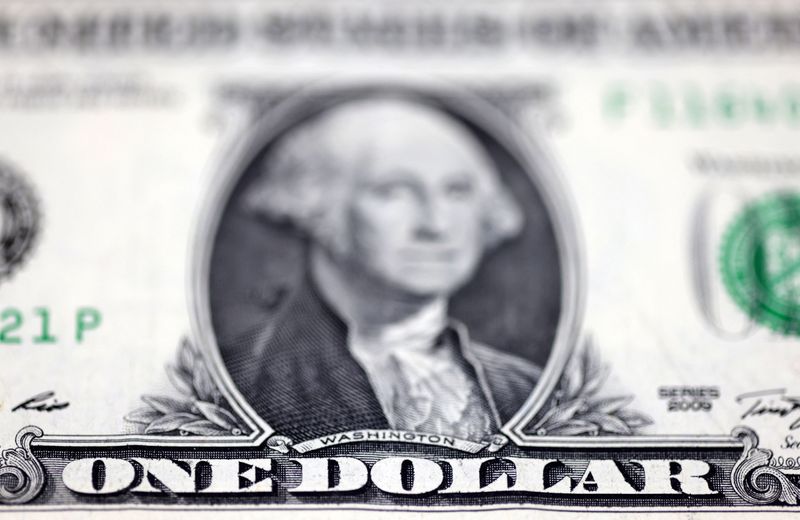By Stefano Rebaudo and Rae Wee
(Reuters) -The U.S. dollar was on track for ending a volatile week with a slight gain, as markets weighed the impact of Donald Trump’s return to the White House and what that means for the U.S. economy and its interest rate outlook.
The U.S. dollar had lost ground in the previous session as traders closed out profitable bets on a Trump presidency following his election victory.
“In the medium term, further dollar strength is not likely to prove sustainable,” said Ulrich Leuchtmann, head of forex research at Commerzbank (ETR:), adding that “the actual policy of the Trump administration is likely to lag behind its announcements”.
Against a basket of currencies, the dollar ticked up 0.05% to 104.47, on track to gain about 0.13% for the week.
It had rallied 1.53% on Wednesday as “Trump trades” picked up strongly.
How Chinese authorities stimulate a struggling economy has been a key focus in recent months for Antipodean currencies, but also for the euro as the bloc’s economy is quite dependent on China’s demand.
traded offshore weakened slightly as investors processed an announcement that China will allow local governments to issue 6 trillion yuan ($838.77 billion) in bonds to swap for off-balance sheet or “hidden” debt over three years.
The was last 0.4% lower at 7.1773 per dollar. It was at 7.189 before the press conference of the Standing Committee of the National People’s Congress.
The single currency dropped 0.2% to $1.078 and was headed for a 0.5% decline for the week which saw the collapse of Germany’s coalition government.
According to George Saravelos, head of forex research at Deutsche Bank (ETR:), the recent political instability in Germany could be positive for the euro, but he said it was too early to price in.
“The impact would run via the potential confidence effect boosts of a more stable government, and more importantly the direct economic effects of a potentially more pro-active fiscal stance,” Saravelos said.
German opposition parties and business groups on Thursday urged Chancellor Olaf Scholz to trigger a new election quickly to minimise political uncertainty after his three-way coalition collapsed.
The U.S. Federal Reserve on Thursday cut interest rates by 25 basis points as widely expected and flagged a patient, cautious approach to further easing.
The central bank’s rate trajectory has been clouded by Trump’s election victory as his plans for hefty import tariffs are widely expected to stoke inflation.
Traders have reacted to the outcome of the election by trimming bets on rate cuts next year, as tariffs are supposed to fuel inflation.
However, Fed Chair Jerome Powell said the results of Tuesday’s presidential election would have no “near-term” impact on U.S. monetary policy.
The yen rose 0.4% to 152.34 per dollar.
The Australian dollar, often used as a liquid proxy for its Chinese counterpart, fell 0.45% to $0.6648 roughly unchanged after news from China.

The was set for a 1.4% weekly gain, its best since mid-September, drawing support from buoyant risk sentiment.
The New Zealand dollar eased 0.30% to $0.6007 but was similarly on track to gain 1% for the week.

